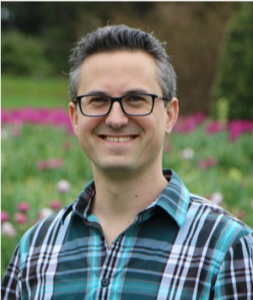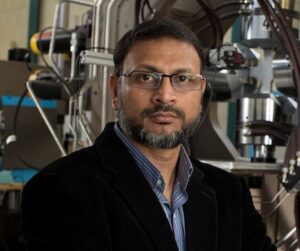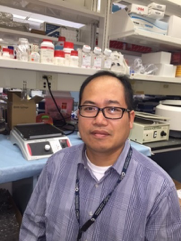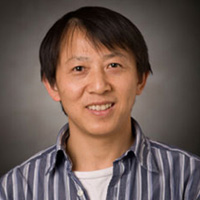 Abstract: Tendon and ligament injuries account for 20-30% of all musculoskeletal disorders and are the most common form of non-fatal occupational injury resulting in over 420,000 days away from work each year. A primary cause of tendon degeneration is overuse (i.e., fatigue loading), which produces repeated microscale damage of the load-bearing collagen fibrils as well as the accumulation of atypical matrix components (e.g., cartilaginous, fat, and calcium deposits) that further weaken the tissue and drive the progression of degeneration. Production of these atypical matrix deposits requires the synthetic activity of cells with abnormal (i.e., non-tenogenic) phenotypes. Previous in vitro experiments demonstrate that endogenous tendon stem/progenitor cells (TSPCs) are multipotent and undergo non-tenogenic differentiation in response to mechanical stimuli. Therefore, it is hypothesized that the atypical matrix deposits observed in degenerated tendons are produced by endogenous TSPCs in response to tendon fatigue loading. However, in vitro mechanobiology studies of isolated TSPCs on artificial substrates do not replicate the mechanical stimuli, cell-matrix interactions, and cell-cell communication that are present in the native tendon microenvironment. As a result, there is a fundamental lack of knowledge regarding the response of TSPCs to the local tissue damage induced by tendon fatigue loading.
Abstract: Tendon and ligament injuries account for 20-30% of all musculoskeletal disorders and are the most common form of non-fatal occupational injury resulting in over 420,000 days away from work each year. A primary cause of tendon degeneration is overuse (i.e., fatigue loading), which produces repeated microscale damage of the load-bearing collagen fibrils as well as the accumulation of atypical matrix components (e.g., cartilaginous, fat, and calcium deposits) that further weaken the tissue and drive the progression of degeneration. Production of these atypical matrix deposits requires the synthetic activity of cells with abnormal (i.e., non-tenogenic) phenotypes. Previous in vitro experiments demonstrate that endogenous tendon stem/progenitor cells (TSPCs) are multipotent and undergo non-tenogenic differentiation in response to mechanical stimuli. Therefore, it is hypothesized that the atypical matrix deposits observed in degenerated tendons are produced by endogenous TSPCs in response to tendon fatigue loading. However, in vitro mechanobiology studies of isolated TSPCs on artificial substrates do not replicate the mechanical stimuli, cell-matrix interactions, and cell-cell communication that are present in the native tendon microenvironment. As a result, there is a fundamental lack of knowledge regarding the response of TSPCs to the local tissue damage induced by tendon fatigue loading.
In this talk, I will present our work investigating how tendon microscale mechanics are altered with tissue damage. I will then discuss how these changes alter the biophysical stimuli (e.g., topography, modulus, strain) presented to tendon cells and how this may affect stem cell behavior. Finally, I will introduce our current work developing an ex vivo model of fatigue-induced tendon degeneration. This model will enable us to identify how TSPCs respond to fatigue damage and altered biophysical stimuli within their native microenvironment. Ultimately, this information will help determine the mechanisms driving tendon degeneration and develop novel treatment strategies to promote tissue repair.
Biographical Sketch: Dr. Szczesny is currently an Assistant Professor at the Pennsylvania State University with a joint appointment in the Departments of Biomedical Engineering and Orthopaedics & Rehabilitation. He completed his postdoctoral training in 2017 as an NIH NRSA F32 Fellow and obtained a PhD in Bioengineering in 2015 at the University of Pennsylvania. Prior to his doctorate, Dr. Szczesny developed medical implants as a Design Engineer for Aesculap Implant Systems and as a research assistant at the Helmholtz Institute for Biomedical Technology in Aachen, Germany. He obtained a MS in Mechanical Engineering at the Massachusetts Institute of Technology in 2005 and a BS in Mechanical Engineering at the University of Pennsylvania in 2003. In recognition of his contribution to the field of soft tissue biomechanics, Dr. Szczesny was an ORS New Investigator Recognition Award Finalist, won 1st place in the SB3C PhD competition (twice), and received the Acta Student Award. Dr. Szczesny’s current research examines how cells in tendon sense the mechanics of their local microenvironment (e.g., strains, stiffness) and how their response drives changes in tissue mechanical properties during tendon degeneration, repair, and development. The ultimate goals of this work are to identify the causes of tendon pathology, discover novel therapeutic options, and direct the design of biomaterials that can recapitulate the behavior of native tissue. Furthermore, his research will produce fundamental knowledge regarding the feedback loop between local tissue mechanics and cellular mechanobiology, which is an important contributor to numerous diseases outside orthopaedics, including aortic aneurysms and fibroproliferative disorders.
 Abstract: Wajid’s presentation is weirdly titled, “Is Combustion a Dirty Word?” a question that challenges the combustion engineers like himself. In the presentation he will share the experiences from his work at National Research Council Canada and Virginia Tech. Specifically, drawing examples from his contributions to the National Jet Fuel Combustion Program, he will touch upon the dynamics of liquid-fuel combustion in a gas turbine engine and the key fuel properties that significantly affect the combustor performance and emissions characteristics. He will also present his view on the future needs and opportunities with respect to liquid fuels and combustion.
Abstract: Wajid’s presentation is weirdly titled, “Is Combustion a Dirty Word?” a question that challenges the combustion engineers like himself. In the presentation he will share the experiences from his work at National Research Council Canada and Virginia Tech. Specifically, drawing examples from his contributions to the National Jet Fuel Combustion Program, he will touch upon the dynamics of liquid-fuel combustion in a gas turbine engine and the key fuel properties that significantly affect the combustor performance and emissions characteristics. He will also present his view on the future needs and opportunities with respect to liquid fuels and combustion.


